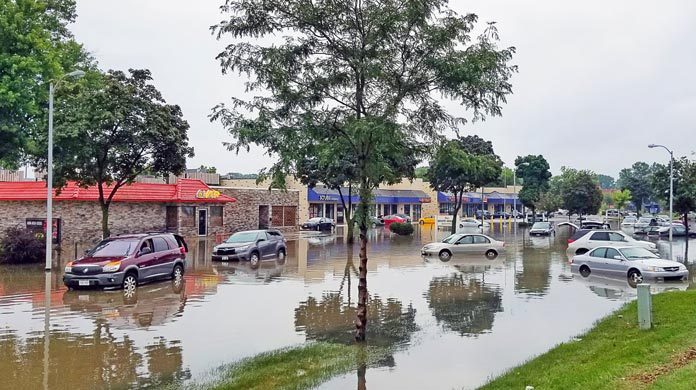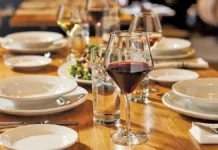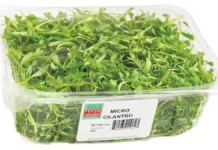
Article contributed by Francine Shaw, President of Savvy Food Safety, Inc.
It’s frightening to think about a disaster striking near our homes, businesses or communities but, truthfully, we’re all vulnerable.
Destructive weather is a concern in all climates, as hurricanes, tornadoes, blizzards, floods, fire, and other extreme events can obliterate a town. Power loss – from storms, heat waves or other causes – can paralyze a community and its citizens. Sadly, terrorism and other criminal acts are becoming increasingly common, with shootings, bombings and other violent activities happening in our beloved towns – sometimes shutting down schools, churches and other community hubs in their wake.
Communities nationwide must be prepared to deal with any unforeseen emergency. When disaster strikes, local systems must continue to function. Cities (and businesses within each city) need contingency plans for power outages (such as emergency generators), backup communication methods (if phone lines and/or Internet are out), and ways to maintain their citizens’ and customers’ safety – regardless of what has occurred.
As a food safety expert, I offer guidance and counsel on food safety issues – risks that we all may face during (and after) a natural or man-made disaster. For instance, during a major hurricane, restaurants, hotels, schools and homes will likely lose power. That means they may not be able to keep frozen and refrigerated foods at proper (cold) temperatures for the duration of the power outage. Or, if the water supply is cut off, people won’t be able to properly wash and sanitize their hands, food, or cooking equipment.
While we hope an emergency won’t happen to our family, business, or community, it’s wise to be prepared in case it does. During any kind of emergency, there are a variety of concerns, including food safety issues. Being prepared – and having a crisis plan – will help limit the chaos, risks, and potential damages during and after an unwanted event. To minimize the costs and disruption – within food service/hospitality businesses and also for families at home – follow these tips to help you prepare, take action, and recover.
PREPARE
Every business and home should prepare before an emergency – before disaster strikes. Make sure to have:
- All building and safety codes up-to-date, to protect against wind, fire, flood, earthquakes and any other disaster. More information can be found here: International Building Code (IBC). These codes have been updated due to recent disasters, such as Hurricane Sandy’s destruction of the New Jersey shoreline. Lessons learned from that destructive incident reinforced the need for building materials that can withstand high winds and resist water infiltration and mold.
- Evacuation plans, in case the situation warrants it.
- A backup generator so your refrigeration and freezer units can remain running.
- Emergency lighting that will remain on during a power outage or disruption.
- Flashlights available. Ensure they’re charged and/or have working batteries, and are in easy accessible locations.
- Emergency phone numbers printed out. If you lose power, you won’t have access to your computer and you may not want to waste your cell phone battery looking for this information. Quickly accessible phone numbers should include: local health department, utility companies, family members, and (for businesses) employees, vendors and customers.
- A good old fashioned land line, with the phone plugged directly into the wall. It can be a life saver in a power outage.
- Extra ice to help stock smaller freezers and coolers.
- Insulated covers to cover coolers and freezers
- Products stored in the freezer in a manner that will not cause cross-contamination if/when they begin to defrost.
- Non-perishable, shelf-stable foods. These products can be safely consumed during a power outage because they don’t require cooking or refrigeration.
TAKE ACTION
If an emergency occurs, you should:
- Ensure the safety of your family, employees and customers. This should be your top priority.
- Check with local regulations to ensure that you’re using alternate power supplies properly and safely.
- Keep refrigerator and freezer doors closed. Temperatures of refrigeration units must be below 41ºF, freezers below 0ºF.
- Add extra ice to refrigerators and freezers.
- Note food safety protocols: with their doors closed, full freezers can keep food cold for about 48 hours (only 24 hours if half full), refrigerators can safely keep food cold for about 4 hours. After 4 hours, food should not be consumed and must be discarded.
- Discard any food that was in the process of being cooked, but did not reach its safe final internal cooking temperature.
- ALWAYS verify temperatures with a calibrated thermometer.
RECOVER
Once the crisis is over:
- Ensure all of your commercial and/or residential kitchen equipment is working properly, reset circuit breakers, and make sure water is hot enough to properly clean and sanitize.
- Discard any food that has been time-temperature abused for too long. If food spoiled in your refrigeration or freezer units, clean and sanitize the units before placing new food into them.
- Don’t taste food to see is if it has spoiled. When in doubt, throw it out!
- Restock your supplies to ensure you have plenty of batteries, shelf-stable foods and other necessities on hand at all times.
- Review your plan and see if there is any room for improvement for future preparedness.
As much as we hope a disaster won’t occur, they do – and with an alarming frequency lately. Plan for an emergency and hope you’ll never actually have to use your plan. That way, even if the unimaginable happens, you’ll have actionable steps to take to stay safer.
Francine L. Shaw is President of Savvy Food Safety, Inc. which offers a robust roster of services, including consulting, food safety education, food safety inspections, crisis management training, writing norovirus policies for employees, writing norovirus clean-up procedures, curriculum development, responsible alcohol service training, and more. The Savvy Food Safety team has more than 100 combined years of industry experience in restaurants, casinos, and convenience stores and has helped numerous clients prevent foodborne illnesses. Francine is a well-respected international speaker,and has been featured as a food safety expert in numerous media outlets, including the Dr. Oz Show, the Huffington Post, iHeartRadio, Food Safety News, Food Management Magazine and Food Service Consultants Society International.























